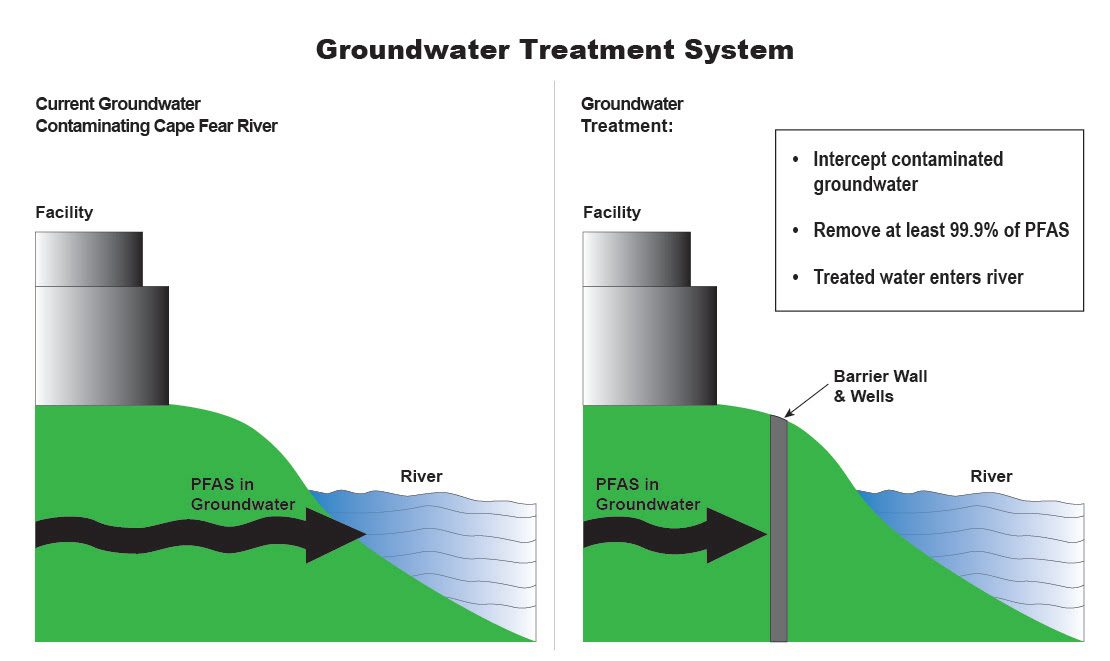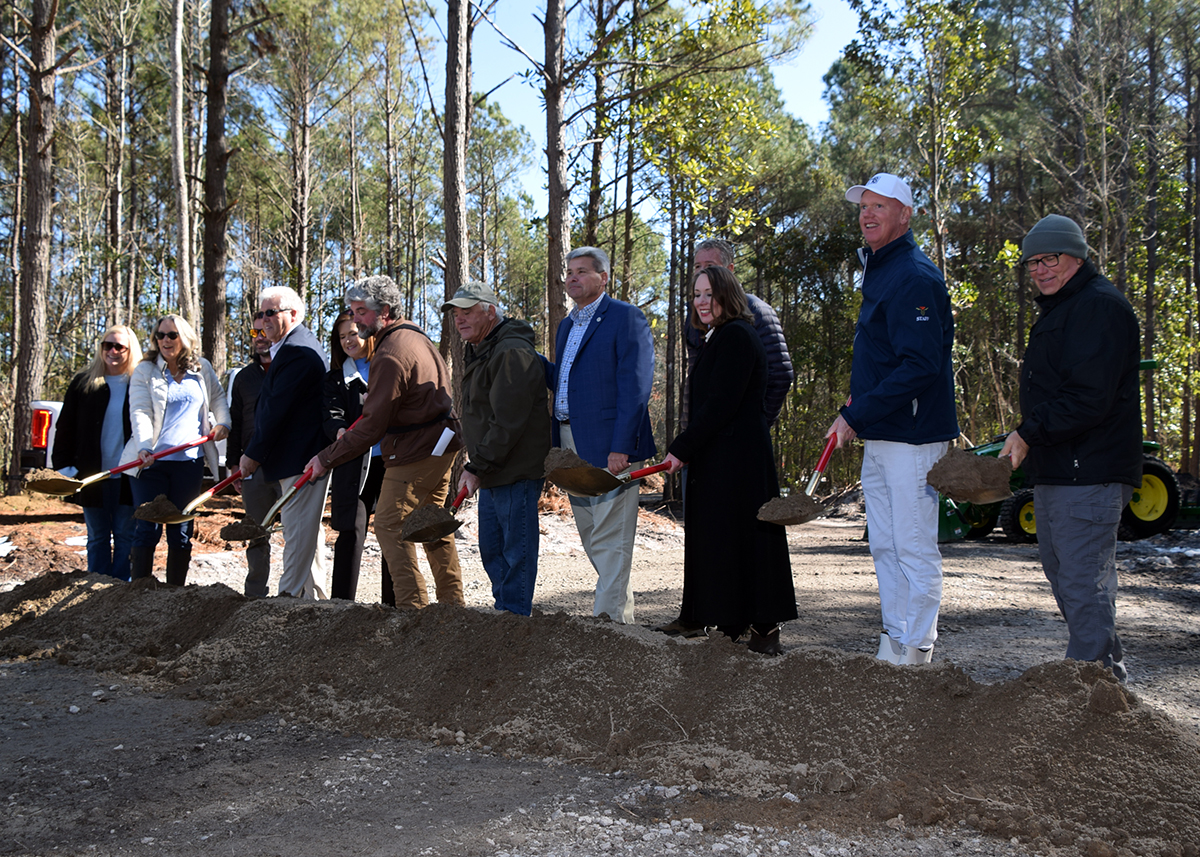
Chemours has appealed the discharge permit the state issued its Fayetteville Works plant citing “late changes” have prompted concerns the company may not able to meet future limits by deadline.
The North Carolina Department of Environmental Quality’s Division of Water Resources, or DWR, issued the final National Pollutant Discharge Elimination System, or NPDES, permit Sept. 15 for a mile-long, underground barrier wall to be built just off the river bank of the Fayetteville plant.
Supporter Spotlight
The wall will reduce the amount of per- and polyfluoroalkyl substances, or PFAS, getting from the plant through groundwater and into the Cape Fear River. Once groundwater hits the wall the water will be diverted to pump stations then to an onsite wastewater treatment plant before being discharged into the river.
Chemours appealed the permit late Friday afternoon, according to company spokesperson Lisa Randall.
In a release, the company stated that it cannot agree to the terms of the permit “when we are uncertain if such commitments can be met or exceeded.”
“We continue to pursue ambitious timeliness to complete and start-up the system to reduce PFAS loading to the river. We are hopeful that we can work with NCDEQ to quickly resolve this matter to continue realizing the significant reductions we have been achieving,” according to the release.
Chemours is required to remove 99% of PFAS discharging into the river under the terms of a 2019 consent order between the company, the state and Cape Fear River Watch.
Supporter Spotlight
The company agreed to the terms of the order after the public was made aware in 2017 that the plant had been discharging PFAS into the Cape Fear, a drinking water sources for tens of thousands in the region, the air and ground since the 1980s.
That consent order also required Chemours to install a thermal oxidizer to capture no less than 99.99% of PFAS from being emitted into the air.
In a statement DEQ released Monday morning, the department reiterated that Chemours “is required to fulfill its obligations under the Consent Order.”
“DEQ expects Chemours to take all necessary steps to minimize its PFAS impacts to the environment,” the statement reads. “Pursuing litigation threatens to delay implementation beyond the Consent Order deadline of March 2023 and extend the ongoing contamination reaching the river and impacting downstream residents.”
Chemours’ appeal comes a little more than a month after the company announced plans to expand the plant’s productivity to support domestic production demand in the semiconductor, transportation, clean energy, consumer electronics and communications industries.
Related: ‘Absolute gall’: Chemours’ expansion plan angers residents
Company representatives last month hosted public informational sessions to share those plans. The company says the expansion will not increase the overall fluorinated organic compounds or greenhouse gases emitted from the site.







